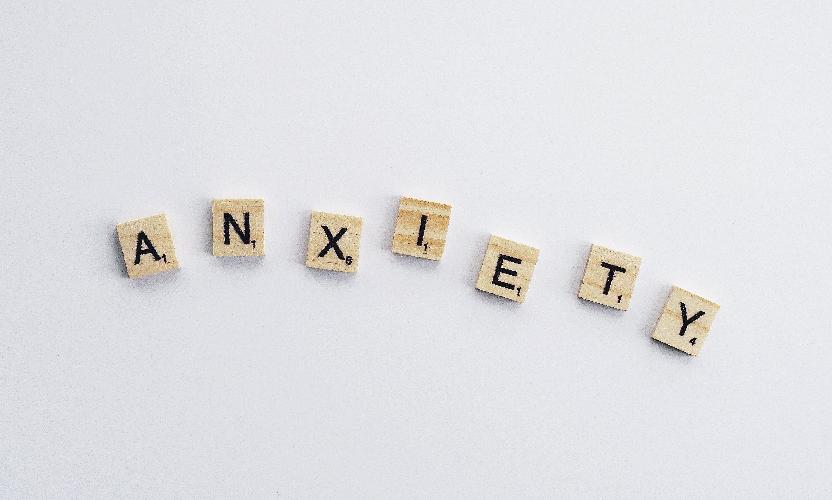How do we cope with and manage our anxiety?
So the big question is, how do we cope with and manage our anxiety? We all have daily stresses and things that make us anxious, but how on earth can we stop it? How can we manage it so that it doesn't overwhelm and dictate how we live our lives? How do we cope with it on a daily basis?.....
What we have covered so far is how anxiety operates and why it can be a problem. We have spoken about how anxiety, in effect, bullies you by sending you anxious thoughts filled with worst-case scenarios, scary predictions and put downs. It can keep you afraid of engaging in everyday activities, which limits your independence and enjoyment of life. Given the seeming strength and power of anxiety, it can feel overwhelming to push back against something that feels so big.
I’m afraid to say that there is nothing that instantly gets rid of all of your anxiety. But there are some powerful tools that you can use to significantly dial down the intensity of anxiety in your body and mind.
The tendency to assume the worst, leads to heightened anxiety. However, what's really important to acknowledge when we are trying to cope with our anxiety is that our thoughts are usually not facts. They’re just guesses. And our guesses can be wrong. This means we don’t have to believe everything we think. It’s also important to understand that when we’re anxious we often fall into what are called “thinking traps”. These are unhelpful patterns of thinking that fuel our anxiety and they tend to overestimate the likelihood of bad things happening.
For example, "What if the hotel I booked for the trip is terrible? I’ll be so upset the entire trip will be ruined!"
This is called catastrophizing and by doing that, we underestimate our ability to cope. The reality is that most of the time things turn out fine! (The hotel you booked for the trip was lovely). Even if is wasn't and even if it didn't turn our as we had planned, it would be more like a hassle than a horror. It would be a situation that we could actually manage. (The hotel wasn’t very good, but you called your travel agent and they arranged for a new hotel).
So, a lot of the things we think when we are anxious aren’t true or helpful, and ultimately contribute unnecessarily to our anxiety. It's really important to remember that managing anxiety involves telling ourselves things that are truthful and helpful (based on facts, not guesses).
This is basically a way of training our brains, of dumbing down our negative self talk and is a wonderful way to help us manage and cope with our anxiety. We can have many thoughts every minute of the day and we all have our own ways of thinking about things, but, how we think has a huge effect on how we feel. Being aware of that is so powerful!
With all that being said, all of the above is a lot easier said than done I hear you say! Just thinking more positively, in that moment of anxiety, is really hard. But by you being aware of what's happening in your mind, allows you to catch your anxious thoughts and replace them with more positive messages. Things like 'you’ve got this’ or ‘its not the end of the world’, or, 'I know how I am thinking isn’t helpful, so how can I change that'?
It’s important to start paying attention to these anxious, unhelpful thoughts and learn to evaluate them. So even today, from this moment, try and catch your thoughts. Pay attention to your emotions. Notice when you feel anxious, even just a little, and ask yourself the following:
- What am I thinking right now?
- What is making me feel anxious or worried?
- What am I afraid will happen?
- What bad thing do I expect to happen?
It’s a really interesting exercise and builds our awareness of self, which, as I have said previously, is so essential in understanding who we are and what makes us tick.
Another great coping mechanism for anxiety is self compassion. Being kind to ourselves is a phrase that has become quite prevalent over the past few years, especially on social media. But it is so important practice.
A lot of people tend to be quite hard on themselves and self-critical. However being mean to yourself doesn’t actually make you perform better and only makes you feel terrible about yourself. Self-compassion is actually linked to greater emotional wellness and less anxiety, and that is a fact! It involves talking to yourself the way you would talk to someone you care about. It means being kinder and more encouraging to yourself. By practicing this, we can reduce negative feelings which are a component to our anxiety. So whenever you catch yourself being too hard on yourself, ask yourself “what would I say to someone I care about?”..... You need to say that to yourself!
These next strategies are aimed more for the body rather than the brain, they are active techniques for the body’s “relaxation response”, which calms the body and in turn helps settle the mind. You can practice these anytime, anywhere. At your desk, on the sofa watching TV or in social settings. So why not give them a go...right now!
Breathing (yep, that's right, simple, deep breaths)!
This technique involves taking smooth, slow and regular breaths. When we’re anxious, we often take short, quick, shallow breaths leading to over-breathing, also known as hyperventilating. Over-breathing can increase physical symptoms associated with anxiety such as lightheadedness, chest pain or shortness of breath. These are harmless symptoms, but they can feel scary and aren’t nice to experience. Calm breathing, on the other hand, can decrease unwanted physical symptoms and it really does help to reduce those anxious feelings.
- Take a slow breath in through your nose for 4 counts
- Hold for 2 counts
- Slowly breathe out through your mouth for 4 counts
- Hold for 2 counts
- Repeat 5 to 10 times
Muscle relaxation
This next technique teaches you how to relax your muscles through a two-step process. Like I have said, these can be done at your desk, on the tube, walking home etc. It will help you to lower your overall tension and stress levels, and help you relax. Our bodies tend to become tense through out the day when we are experiencing anxiety. You forget and can't recognize what being relaxed feels like. By tensing and releasing, you learn what relaxation feels like and how to recognize when you are starting to get tense during the day.
How to Do it:
- Step 1: Tense – Focus on one muscle group at a time (for example, your left hand), squeeze those muscles (e.g. make a fist) until you feel warmth and some pressure (about 5 seconds).
- Step 2: Release– Then, let the muscles become loose and limp as the tension flows out (about 10 seconds).
How did you get on?
You might be thinking that these techniques sound ridiculous?! How can breathing and tensing muscles help with anxiety? But, these are scientifically proven techniques that allow us to focus on something other than our anxiety and bring us in to the moment. Another way to describe these techniques is that we are being MINDFUL.
This leads us on to last topic I want to cover, which is a wonderful way to cope and manage our anxiety;
Mindfulness
Mindfulness is another way of coping, managing and controlling our anxiety. Being mindful means paying attention to the present moment, exactly as it is. The exercises we have just covered allowed us to concentrate and be in that moment, be it by our calm breathing or focusing on tensing and relaxing. Our mind was present in that moment and was focused on what we were doing. Being mindful helps us better manage our anxiety. It’s really hard to be anxious if you’re completely focused on the present moment. I know that this is a far cry from what we usually do when we’re anxious, which is to get stuck in our heads and think about everything that could go wrong! The anxious brain likes to predominantly hang out in the unknown future and think about all the worst-case scenarios but mindfulness stops that in its tracks.
One way to understand mindfulness is to look at the example of having a bath. As you’re getting into the tub, you decide that you’re going to focus on that experience instead of worrying about what will happen at work tomorrow. You feel the warm bath water on your skin. You look around and see all the bubbles floating around the tub and notice the scent of the bubble bath. All of your senses are alive and focused on the present moment. This is being mindful. Learning the practice of mindfulness will absolutely help you with managing your anxiety. Practicing daily , if or when you feel anxious, can help you settle your mind and body by being more in the present moment.
A simple mindfulness exercise involves simply noticing what you are experiencing right now through three senses – sound, sight and touch. Ask yourself;
- What are three things you can see? (e.g., the table, the picture on the wall, your mug)
- What are three things you can hear? (e.g., clock on the wall, car going by, your breath)
- What are three things you can feel? (e.g., the soft chair cushion, the cold floor under your feet)
So try it, when you are eating, taking a shower, doing the dishes… Notice how you feel and notice how your anxiety dissipates because you aren’t focusing on it. Trust me, it really does work!
Remember, practice makes perfect. Managing and coping with anxiety takes some work and as they say; Rome wasn't built in a day. Little by little, day by day, we become better at it. We become more skilled at our craft, more aware of how we behave and react to things, and by understanding what is happening to us, we are able to change for the better.
We have come to the end of this four part blog on anxiety. I'm really hoping that you have found this informative and that you have been able to take something away from them.
Please do remember that;
Anxiety doesn’t have to control us, we can control it. With greater understanding of exactly what it is, comes a far more enjoyable and happier life. We live, instead of just existing. Understanding yourself, I believe, is at the beginning of all wisdom.
Need to talk?.....
For more information about 'Coping with anxiety', check out the below video's:

